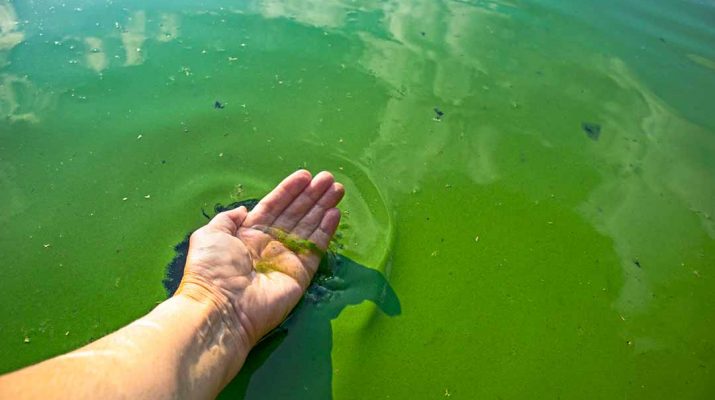AGRICULTURE Victoria is warning livestock owners to be aware of blue-green algae in farm water supplies and standing flood water, which can harm animals if ingested.
The warning comes as flooding combined with warmer weather has produced favourable conditions for blue-green algae to thrive in water supplies.
Senior veterinary officer, Dianne Phillips, said livestock owners needed to remain alert as blue-green algae can be poisonous.
“As there is no specific treatment for blue-green algae poisoning, producers should check standing bodies of water and farm water supplies daily for blooms, as this remains the most effective way of preventing stock deaths,” Dr Phillips said.
“Blue-green algal blooms typically appear as surface scum that looks like a suspension of green paint, often with an earthy smell. However, the colour may range from pale green to dark brown.”
Deaths can occur when animals drink toxins produced by the blue-green algae, often when it is concentrated on the down-wind side of a water and has formed a dense, surface scum.
Animals who have consumed blue-green algal toxin may appear ill very rapidly, stagger, collapse, convulse and die – typically within 24 hours – depending on the toxicity of the bloom and the concentration of the toxin.
Those who don’t die immediately often suffer from severe liver damage. This may lead to the development of jaundice – the yellows – or photosensitisation over the next few days.
Livestock that recover from these ailments often suffer from chronic ill-thrift.
If a suspicious bloom is noticed, the water should be isolated as quickly as possible, and a safe alternative supply provided.
“Where possible producers should identify an alternative water supply, prior to their primary source of livestock drinking water being affected by a bloom,” Dr Phillips said.
“There may not be time to identify an alternative water source once the primary water supply is affected.
“We recommend laboratory testing of the water supply for the presence of blue-green algae and a post-mortem or examination of dead or sick animals by a veterinarian.”
Contaminated water should not be used to irrigate vegetables and fruit or come in contact with plants being grown for food.
This is particularly for fruit and vegetables that are mostly eaten raw such as apples, grapes, tomatoes, strawberries, cabbages and other salad greens.
Dr Phillips said dogs were also prone to poisoning as they can swim in farm water and should be kept away from suspect water sources.

